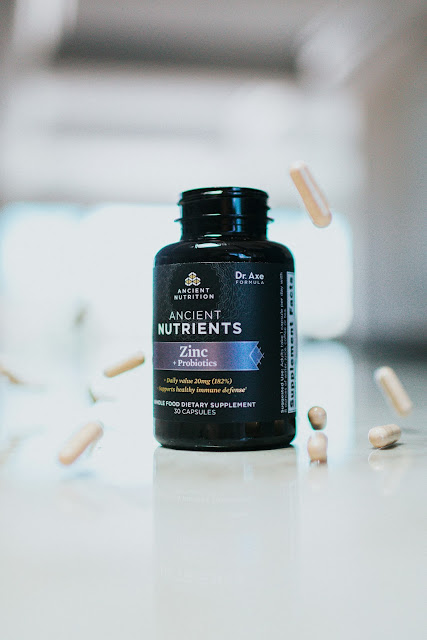 |
| Nathan Dumlao | unsplash |
Supplements have become an increasingly popular option for people looking to enhance their health and well-being. From vitamins and minerals to herbs and other natural remedies.
While supplements can be a valuable addition to a healthy lifestyle, it's important to approach them with caution and understanding.
One of the key reasons people turn to supplements is to fill in nutrient gaps in their diet. In today's fast-paced world, it can be challenging to get all the essential vitamins and minerals our bodies need through diet alone. Supplements can help bridge this gap and provide the necessary nutrients to support overall health and well-being.
However, not all supplements are created equal, and it's important to do your research before incorporating them into your daily routine.
Before Taking Supplements Take Note Of These
1. Consult with a healthcare professional: Before starting any new supplement regimen, it's essential to consult with a healthcare professional, such as a doctor or registered dietitian. They can help you determine which supplements may be beneficial for your specific health needs and guide you on the appropriate dosage.
2. Quality matters: When selecting supplements, opt for reputable brands that undergo rigorous testing for purity and potency. Look for products that have been certified by independent third-party organizations to ensure quality and safety.
3. Read the labels: Pay close attention to the ingredient list and dosage information on supplement labels. Make sure you understand what you're putting into your body and follow the recommended dosage guidelines to avoid any potential side effects.
4. Consider your individual needs: Not everyone requires the same supplements, as individual health needs can vary. Some people may benefit from specific nutrients due to deficiencies or health conditions, while others may not need supplements at all. Consider your unique health goals and requirements when choosing supplements.
5. Use supplements as part of a balanced approach: While supplements can complement a healthy diet and lifestyle, they should not be viewed as a quick fix or substitute for a well-rounded approach to health. Focus on maintaining a varied diet rich in whole foods, regular physical activity, and adequate sleep to support your overall well-being.
List of supplements you can make use of
1. Omega-3 fatty acids: This is found in fish oil supplements, omega-3 fatty acids can help reduce blood pressure levels.
2. Magnesium: Magnesium supplements can help relax blood vessels, thereby lowering blood pressure.
3. Potassium: Increasing potassium intake through supplements or potassium-rich foods can help balance sodium levels and reduce blood pressure.
4. Coenzyme Q10 (CoQ10): This antioxidant may help lower blood pressure by improving heart health.
5. Garlic: Garlic supplements have been shown to have a modest effect on reducing blood pressure.
6. Hibiscus: Hibiscus supplements may help lower blood pressure due to their diuretic properties.
It's important to consult with a healthcare provider before starting any new supplement regimen, especially if you're on medications for high blood pressure or other health conditions.
To rap it up, supplements can play a role in supporting optimal health when used thoughtfully and in conjunction with a healthy lifestyle. By being informed, seeking guidance from healthcare professionals, and choosing high-quality products, you can make the most of supplements to enhance your well-being.
Also, remember that everyone's needs are unique, so it's important your supplements are tailored to fit your health goals and requirements.
